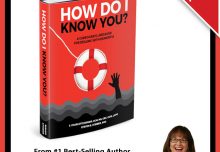 I left off last week with the first five (of ten) tips to healthy aging. Before I continue with the five that comprise the rest of the list, I want to point out that this is not meant to be an onerous list that no one can ever complete. It is about your loved ones doing their best on as much of the list as possible. And as with Rome, it will not be all done in one day.
I left off last week with the first five (of ten) tips to healthy aging. Before I continue with the five that comprise the rest of the list, I want to point out that this is not meant to be an onerous list that no one can ever complete. It is about your loved ones doing their best on as much of the list as possible. And as with Rome, it will not be all done in one day.
Picking up where we left off, here is 6 through 10:
- Filling Out an Advanced Directive – In 1990 Congress passed the Patient Self Determination Act which allowed adults to have a say in how their life decisions would be managed if they were unable at a particular moment to have a say. Talk with your older loved one about “what they would want if.” Some states have the form on line, but an attorney can easily be consulted to help dot the “i’s” and cross the “t’s”.
- Be active – Your older loved one does not have to join a gym, take a course in Pilates or run a marathon unless they wish to do so. But they do need to keep the parts moving so that they will work better. Regular exercise such as long walks or swimming also helps stave off high blood pressure, diabetes, arthritis and depression. Or if they say they would rather read a book, show them how to do that … on a stationary bike! It’s worth the sweat.
- Input affects output – We all have heard that we are what we eat. It’s true. Steer your older loved ones to something new and delightful like fresh foods over processed foods or organic produce over the old alternatives. Encourage new recipes and portion control. Regarding portions, a rule of thumb is to target eating until we feel 80% full.
- Active Applies to the Brain – Some cognitive decline is just part of the aging process, but encourage your older loved one to not just give up on their brains. And this is not limited to just doing the Sunday crossword puzzle. Anything that stimulates the brain is good for the brain. Think of the brain as a muscle that needs to work out to be its best.
- Aging is Not a Solo Act – More than one in four older adults lives alone, but that does not mean that they need to consider their residential status to be some sort of “solitary confinement.” Getting out for coffee is not about the coffee, it is about the company they keep.
I said this last week, but please allow me to repeat myself when I say that all of these tips are great counsel for anyone at any age.
Charlotte Bishop is an Aging Life Care Advisor, Geriatric Care Manager and founder of Creative Care Management, certified professionals who are geriatric advocates, resources, counselors and friends to older adults and their families in metropolitan Chicago. She also is the co-author of How Do I Know You? A Caregiver’s Lifesaver for Dealing with Dementia.





